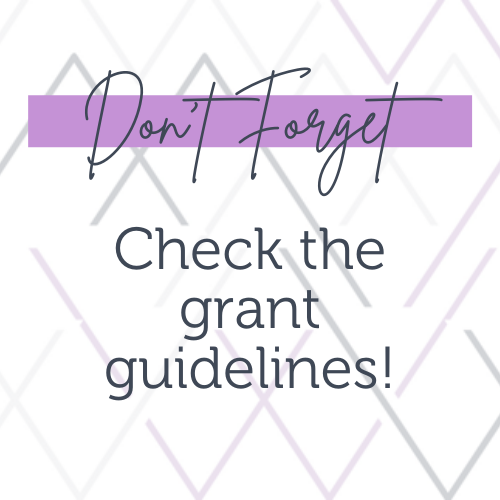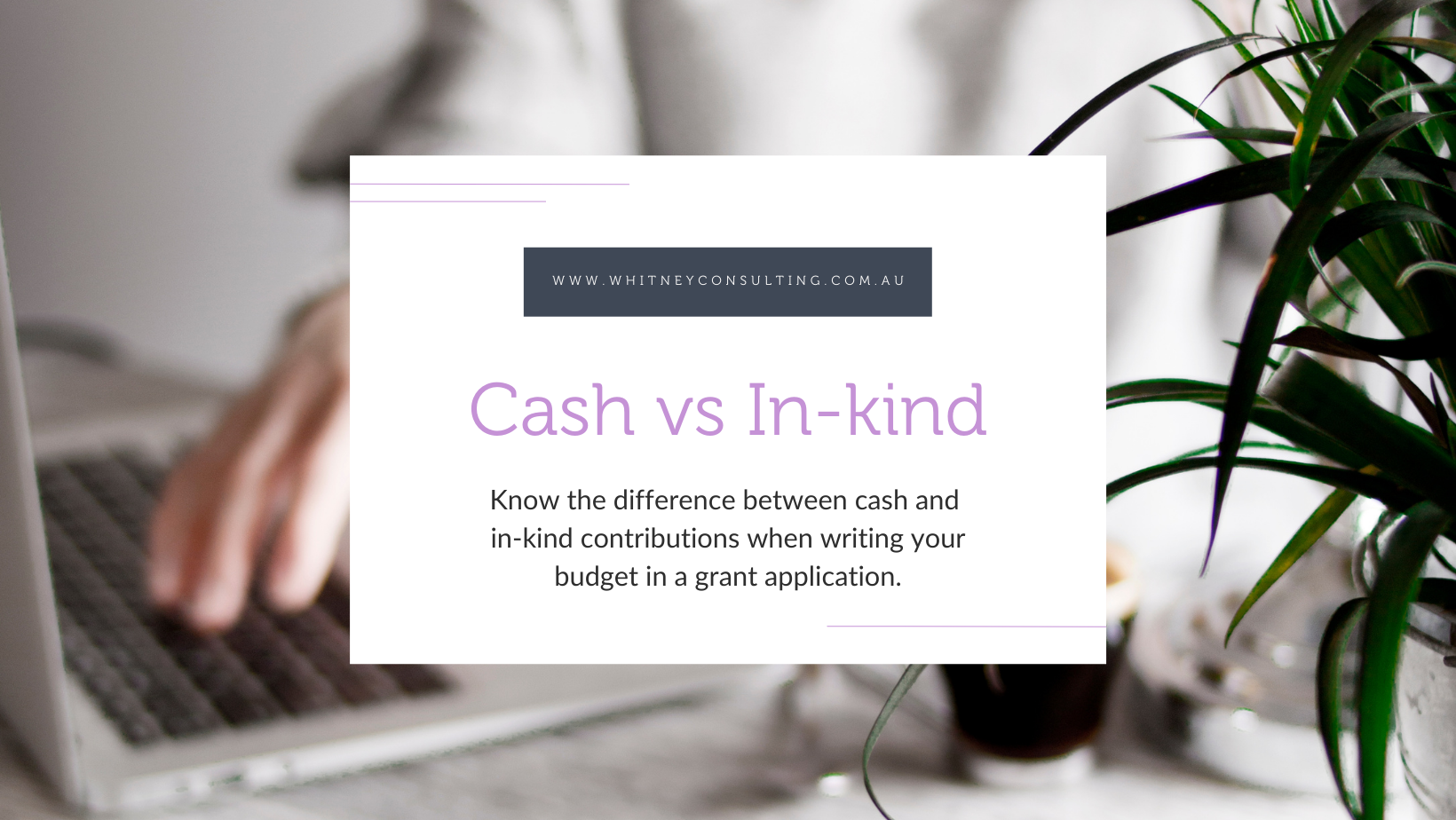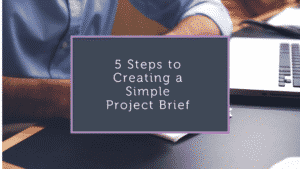Arguably one of the most important parts of your grant application is the Budget. Your budget needs to clearly detail to the assessor what the costs of your project are, what their money will pay for and any other sources of income or contributions.
When writing your budget, it is important to know there are different types of contributions that can be included, these are cash and in-kind. At Whitney Consulting we receive many questions on cash vs in-kind contributions so thought it was important to help clear up some of the confusion.
Generally, cash and in-kind contributions can be described as:
Cash contribution
A cash contribution is cash provided to purchase a good or service in order to complete the project. The money is coming out of your account and it is only being spent because you are doing the project – if you weren’t completing the project, you would not have spent that money.
In-kind contribution
A contribution of a good or service (not cash) to the project. No money is required as the service is being provided for free (e.g. volunteer labour) or the money has already been spent to purchase the goods irrespective of the project (i.e. the goods were not purchased directly for the project, they existed already and were then donated).
Examples of In-kind donations can be:
- Voluntary labour such as volunteering at an event or completing manual work.
- Donated goods such as materials for an infrastructure project or sporting goods.
- Donated services such as advice from a lawyer or an expert in their field.
- Existing, salaried staff being reallocated from their normal work to the project (Don’t forget to include tax and superannuation in the cost though!)
Simple? Well, it generally is, especially when you have a third party who are donating a good or service to your project. It is a bit trickier to work out whether it is a cash vs in-kind contribution when you are the primary applicant.
As touched on above, a cash contribution is anything that you would not have paid for unless you were doing the project. It is an expense made directly as a result of the project you are doing. Let’s explore this.
So, say you have a permanent, salaried staff member who works 2 days a week. As a result of the project that you are seeking funding for, this staff member will increase the hours worked. This person will now be working one extra day per week increasing her total workload to 3 days per week. Now, the additional day that she works will be a cash contribution as it is an expense that will have to be paid as a direct result of doing the project – you would not have paid her for that extra day a week if you were not doing the project.
If she is also going to work on the project during her permanent, salaried two days however, this would be an in-kind donation. This is because it is an expense that your organisation would have been paying regardless of whether the project would be going ahead or not. She is permanently employed two days per week so you need to pay her whether she is working on the project or not. That is why it is an in-kind contribution.
So, remember a cash contribution is paying for a good or service out of your account that you normally would not have paid for if you were not doing the project. An in-kind contribution is pretty much anything else!
Whether or not in-kind contributions should be included in the budget for your funding application is dependent on the grant – you need to read the guidelines or, if unsure, ask the funding body.
If you do include the in-kind contributions in the budget, then you need to make it clear that they are in-kind and not cash. Some tips for dealing with in-kind contributions are:
- Calculate all goods that have been donated at the price you would pay for them if they were not donated.
- Detail the rate of pay generally charged by clients for any services or donated labour from trades or professionals and the number of hours work they have donated.
- Show the rate of pay for volunteers. VolunteeringWA have a fantastic tool called a “Volunteer benefits Calculator” that will work your organisation’s annual volunteer cost. If you do not need the annual cost they have all the volunteer rates you will need listed by age at their link https://www.volunteeringwa.org.au/resources/volunteer-benefits-calculator.
Many grants ask for a co-contribution to the project from applicants. In-kind is often accepted as a contribution, but not always. Some funding bodies stipulate that 100% of an applicant’s contribution must be cash but some may allow your contribution to be only in-kind, and some may put a limit on the percentage of in-kind that makes up your contribution. Whether in-kind donations are allowed or not all will be detailed in your grant guidelines so check this document to be sure.

Hopefully this helps you to complete your next budget for your project and makes it a bit easier to distinguish between a cash and in-kind contribution. If you have any further questions about what has been covered in this blog post or about Whitney Consulting – hit the button below!






